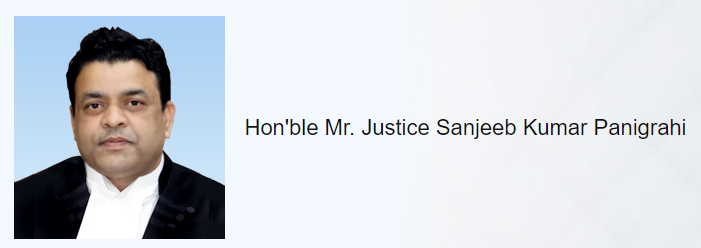The Orissa High Court, while considering a bail plea, observed that Tik Tok Mobile Application is required to be properly regulated.
The court said,
“Tik Tok Mobile App often demonstrates a degrading culture and encourage pornography besides causing pedophiles and explicit disturbing content.”
Justice SK Panigrahi observed that the application ‘often demonstrates a degrading culture and encourage pornography besides causing pedophiles and explicit disturbing content’ and that the regulation of such is required ‘to save the teens from its negative impact.’
Also Read: Bois Locker Room: Delhi HC directs Delhi police’s cyber cell to complete investigation expeditiously

The accused in this case was the wife of the deceased. The deceased had committed suicide after the co-accused streamed in Tik Tok some of his intimate and private videos with the accused. Both were charged under Section 306 IPC for abetment of suicide. Though the Court granted bail to the accused, it noted some negative effect the Tik Tok App creates on youth. The judge observed:
“It appears that the Tik Tok videos in the instant case has become the cause for tragic end of an innocent life, though the content of the Tik Tok video could not have been touched by the updated case diary. This kind of transmitting Tik Tok videos with offensive content to harass victims are on prowl and are gradually on the rise. Large number of people, especially the youth, both in rural and urban areas, are vulnerable to such troubling trend. Such act is executed smartly through digital platforms and get integrated with the social media.
Seeing such Tik Tok videos getting viral might have become humiliating and embarrassing to the deceased which is quite apparent in the instant case though the content of the videos is yet to be brought into the preview of the investigation. Of late, Cyber bullying activity like the instant case, has reared its ugly head and swept away so many innocent lives through many of its ugly manifestations. Tik Tok Mobile App which often demonstrates a degrading culture and encourage pornography besides causing pedophiles and explicit disturbing content, is required to be properly regulated so as to save the teens from its negative impact.”
The Court said that the appropriate Government has got the social responsibility to put some fair regulatory burden on those companies which are proliferating such applications as India lacks in specialized laws with regards to cyber bullying.
“Though certain sections of the Information Technology Act in conjunction with other Acts in force, do have the teeth to bite such offenders especially Sections 66E, 67 and 67A,which stipulates punishment for violation of privacy, publication and circulation of what the Act calls “obscene” or “lascivious” content, but grossly insufficient. The Information Technology Act, 2000 does impose an obligation upon such companies to take down content and exercise due diligence before uploading any content, but India lacks a specialized law to address the crime like cyber bullying.”
The Madras High court had made similar observations about the Tik Tok Mobile Application and had even directed the Government to prohibit the download. Later this order was vacated with a warning to TikTok management that if it violates its undertakings to filter negative and inappropriate or obscene materials, it can amount to contempt of court.
Read the judgement here:

